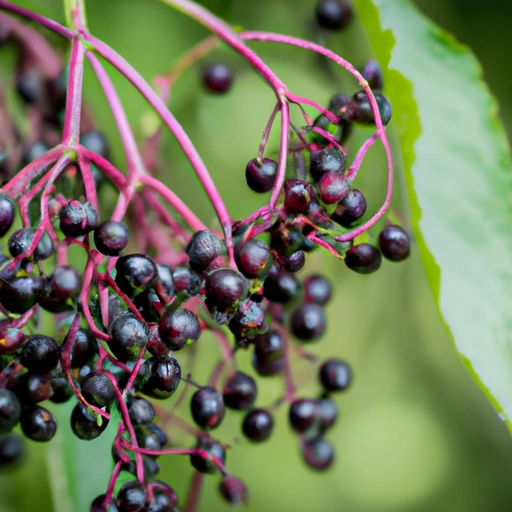Elderberry
Description

Elderberry, known scientifically as Sambucus nigra, is a dark purple berry from the European elder tree. These small, tart berries are renowned for their deep flavor and have been used in cooking and traditional medicine for centuries. The elderberry is a versatile ingredient, celebrated not only for its taste but also for its health benefits. As a rich source of vitamins and antioxidants, elderberries have been embraced by culinary enthusiasts and health-conscious individuals alike.
Common uses
Elderberries are commonly used in syrups, jams, jellies, and wine. Additionally, they are often found in dietary supplements and natural remedies, especially those aimed at boosting the immune system.
Nutritional value
Calories
Typically, 100 grams (about 3.5 ounces) of fresh elderberries carry approximately 73 calories.
Protein
100 grams of elderberries contain about 0.66 grams of protein, or about 0.02 ounces.
Fat
Elderberries are low in fat, providing just 0.5 grams of fat per 100 grams (0.02 ounces).
Carbohydrates
The carbohydrate content of elderberries is about 18.4 grams per 100 grams, which equates to about 0.65 ounces.
Vitamins
Elderberries are particularly high in vitamin C, with 100 grams providing 36 milligrams, which is about 60% of the recommended daily intake. They also contain vitamin A and B vitamins in smaller amounts.
Minerals
Elderberries boast a good mineral profile, including potassium, calcium, and iron. For example, there are 280 milligrams of potassium per 100 grams of elderberries.
Health benefits
Elderberries are celebrated for their immune-boosting properties, largely thanks to their high antioxidant content. They may help reduce the severity and duration of colds and the flu, and their anti-inflammatory effects can contribute to overall health and well-being.
Potential risks
Raw elderberries, leaves, and stems of the plant are toxic and should not be consumed. Cooking or processing adequately eliminates the toxins. People with autoimmune conditions should also be cautious as elderberries can stimulate the immune system.
Common recipes
Elderberry is often used to make cordials, wines, and teas. It's also a popular ingredient in pies, crumbles, and other desserts.
Cooking methods
Cooking elderberries is essential to destroy toxins. They can be boiled, simmered, or baked.
Pairing with other ingredients
Elderberries pair well with other fruits, such as apples or blackberries, and spices, like cinnamon or ginger.
Summary
Elderberry is an ancient fruit with modern appeal. Its rich nutritional profile and potential health benefits make it a valuable addition to various dishes and health supplements. While it must be cooked to be safe for consumption, its unique flavor enhances many recipes worldwide.